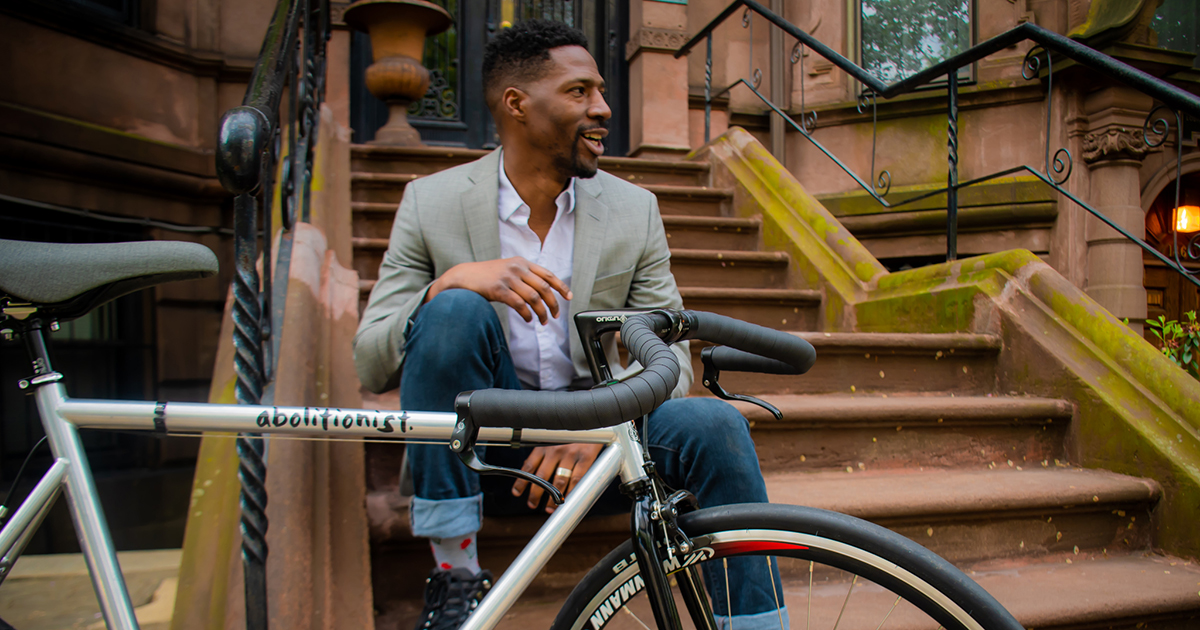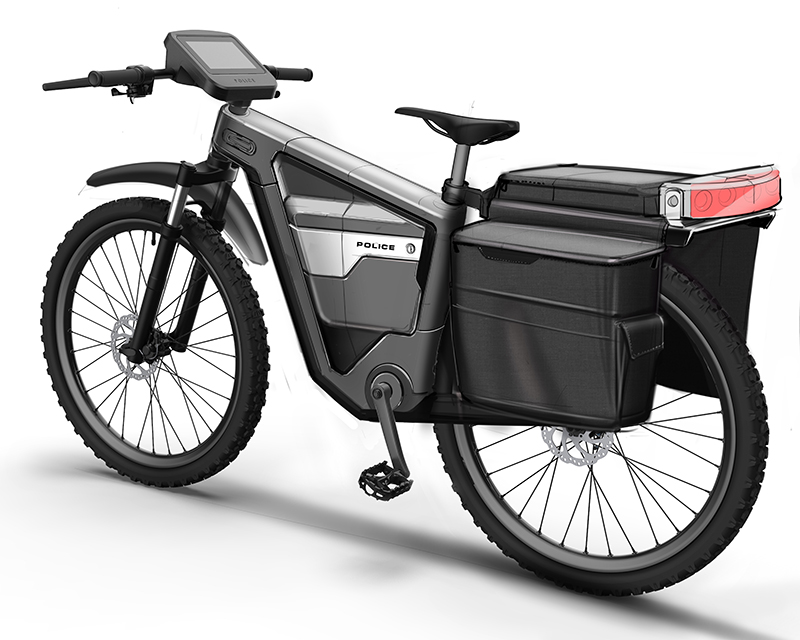Entrepreneurship as Protest

Brandale Randolph knows the pain of police violence and the toll it takes on families. Now, he sells high-tech bicycles to police departments.
Randolph stands as a testament to the power of entrepreneurship, not only in pivoting his business but also as a symbol of protest and effecting change simultaneously.
I first met Randolph and his wife, Assistant Professor of Entrepreneurship Angela Randolph, at a Babson College event to welcome new professors and their families in 2015. Brandale Randolph and I bonded over the shared loss of loved ones, and over the past five years, we’ve shared conversations, correspondence, and friendship.
A poverty advocate and history buff with a background in business, Randolph named his company 1854 Cycling after the July 4, 1854, protest in Framingham by the Massachusetts Anti-Slavery Society, attended by William Lloyd Garrison, Sojourner Truth, and Henry David Thoreau.
Randolph’s founding vision was to hire—at a living wage—formerly incarcerated mothers. They often find it hard to get jobs upon their physical release from prison, effectively locking them and their kids into another link in the historical chain of poverty.
Pivoting with Police
But, recent tariffs on Chinese imports drove up the price of bike parts, which nearly smothered his business, now nearly five years old. Randolph—until then making a few hundred units per year out of a garage—was forced to find a way to pivot last year. He retooled his strategy and partnered with well-known local technology companies.
The result was an electric power-assisted bike that includes top-end data and communications tools: the Thoreau Tactical System. The current challenge is fulfilling orders from law enforcement agencies by the tens of thousands for the $10,000-plus customizable package. Law enforcement agencies appreciate the advantages of bike-mounted officers, who are less intimidating, more agile and approachable, work in all weather conditions, and sometimes deliver life-saving medical attention in contexts such as overdoses.

1854 Cycling’s high-tech Thoreau Tactical System
Ahead of Juneteenth this year, Randolph shared his vision for the future. Here are highlights of our recent conversations and correspondence, excerpted from my blog, Extreme Entrepreneurship.
What is your perception of the present and vision for the future?
“The racial wealth gap is the scariest part of our current context. As Martin Luther King said, ‘What good does it do to be able to eat at a lunch counter if you can’t buy a hamburger?’
“I have survivor’s guilt. Because there are so many brilliant Black people unemployed, or underemployed, that will never make it back. This predates COVID-19, but the pandemic made it worse. Our best and brilliant are under-earning. College-educated young people are driving for Uber.
“What will close the Black wealth gap? Especially if entrepreneurship is one of the ways we move up? We’ve had to boot strap it, but what do we do if the bootstraps are removed?”
What is it like to do business with law enforcement agencies, especially now?
“My overall goal is to demilitarize the police force. I see a neighborhood and visualize a better way of serving, the same way that I see in other communities. Not with weapons. I am thinking, ‘You are about to go into my neighborhood? Here’s what I want you to have.’ We see breakdowns now in building relations. I’d like all neighborhoods to see an officer helping a homeless person or the elderly.
“Instead, I want to provide information tools so that officers have context—so that they better understand the communities and the people and the situation.
“To clarify: I don’t want law enforcement professionals to be social workers. But, I see a world where they have a better connection to social workers, mental health professionals, etc.”



